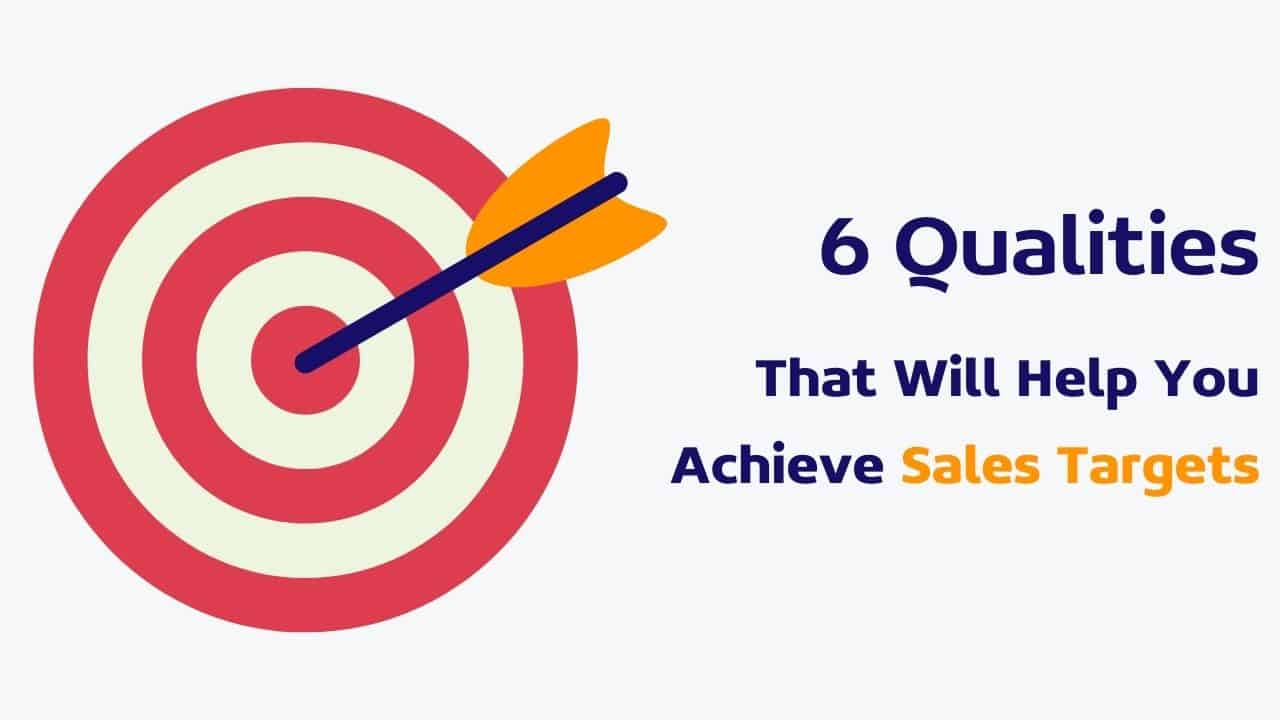
Have you thought about what qualities a good salesperson should have? Most articles usually describe steps that can help you achieve sales targets rather than provide a list of qualities and traits that you need to develop.
You probably know these steps by heart. Measure your progress, set a reasonable timeframe, focus on reducing the length of the sales cycle…and etc. But there’s one catch: These steps don’t explain what makes someone a great salesperson.
Wouldn’t it be much easier to improve a sales process if you knew the root cause of sales success?
In this blog post, we describe the TOMMIE sales principle by Pat Surlis, Principal at Billy Johnston & Co.
TOMMIE is an acronym that stands for Trusted, Organized, Motivated, Mature, Interested, and Effective.
These are the six qualities that are the foundation of your sales success.
What are the top qualities of a highly successful salesperson?
Let’s dig a bit deeper into each of the six qualities and why every successful salesperson needs to have them.
Trusted
We’ve all heard it on multiple occasions: sales are a two-way street. Your clients need to trust you. But maintaining trust is no less important than building it.
Trust is about delivering. Let your customers know that they can count on you. Nothing is perfect, sometimes things break, and people make mistakes. You can’t control everything, and this is fine. But your customers should rest assured that you can handle problems and deliver the experience they’re looking for.
“Always remember you are there to help your potential customers and to make their lives better. Not the other way around.”
— David Ferguson, Managing Director at Babel Academy of English
And trust is also about anticipating. Businesses don’t need to wait till their client comes to them with a problem. It’s better to be proactive and reach out to customers on a regular basis asking them about their challenges. You might not always have the best solution for them right now, but you’ll have a bigger picture of your customers’ needs and can work your way from there.
“Ask questions, listen and take good notes. You’d be surprised what you can learn about how you can help a potential client. Using a CRM on every interaction will make sure you don’t miss a detail for the next time you touch base.”
— Erik Cattelle, Chief Game Officer at RezEvents
Organized
Every salesperson needs a well-organized process that covers all stages, starting from prospecting and qualifying leads to closing deals.
“The single most important thing in sales is the number of very well-organized activities. Hence a good and easy-to-use CRM is a must.”
— Greg GutKowski, Principal at 3Clicks
Your sales process will evolve as your business evolves. Some steps will become obsolete, and as time passes, you’ll find more efficient ways to do sales.
If you have a clear process, you always know what your next best step is and how to get there. In OnePageCRM, we call these steps Next Actions. These are the small steps salespeople do every day: send a quote, call a customer, schedule a meeting—you name it! But these small steps are essential for your sales success.
Motivated
Do you show enthusiasm when discussing your product or services? As life gets in the way, motivation and enthusiasm might not be easy to maintain.
In The Power of Habit, Charles Duhigg mentions that willpower is similar to a muscle: you need to train it… but it gets tired. The same applies to motivation. After a few setbacks, it’s hard to keep your spirits up.
But there are a few things you can do.
Pat Surlis suggests: “Pick the shortfall figure, add it to the total, divide by the number of sales weeks (or days) left in the year, and then look for prospects. With the list comes the energy.”
And you know what? Checklists train your brain to be more productive and goal-oriented. We all know this sweet feeling of satisfaction that we get after crossing an item off a to-do list.
But your list doesn’t have to be about outstanding tasks. If you want to keep your motivation high, you can also compile a list of the things that you’ve already accomplished. The achievements lists can pump you up and set your mind to success.
There’s nothing wrong with relying on past achievements. We all need a bit of encouragement sometimes.
Mature
Maturity in sales is about knowing who your target audience is. Your product or service might not be for everyone, and it shouldn’t be. Be open about what you can do. If you clearly communicate the value you bring, it’ll pay off eventually. Why would you spend time and effort trying to sell a product to someone who doesn’t need it?
“You can find language schools everywhere trying to sell you their French classes and programs. We don’t do that. We are a club inviting people to actually learn French AND make new friends through conversations and games.”
― Axel Girier-Dufournier, Founder at MOLKOI LLC
Being business- and sales-mature is also about transparency. Depending on how complex your pricing is, it might be a good idea to talk potential clients through your pricing plan. If you work in a software company, data security will also be an important topic to cover with a client and address their concerns and questions in a timely manner.
Interested
A good salesperson is interested in their product and knows it inside out. But it doesn’t stop there.
You also need to be interested in helping your customers. How can you show a genuine interest without coming off too pushy?
- Add a personal touch every time you speak with clients. With a good CRM system, it’s easier than you think. For example, Lauretta Wright, Founder at Home and Horizon, shares the following advice: “Whenever I liaise with people, I’ll make detailed notes on what we spoke about, including their hobbies, family, personal preferences, etc. When I next speak or email them, I’ll ask how their holiday to Corfu was or if they had heard about that latest report relating to their industry. It really shows that (a) you listen and (b) you care. You’re more likely to build a rapport this way—and best of all, you’ll be remembered.”
- Follow up consistently. You have a busy life. And so do your customers. They might be interested in what you offer, but it’s just not on top of their list right now. Maybe they saw your email and wanted to reply but postponed it to later. You’ll never know if you don’t follow up. For example, in OnePageCRM you can see if a prospect or a customer opened your email, so you can follow up with them straight away.
- Show passion. “If you are passionate and authentic while meeting client needs, you will build strong, long-lasting relationships that go well beyond just selling something.” – Don Snyder, Owner of TruVoice Studio.
Effective
In business and sales, it’s easy to get used to what you’re doing and stop noticing things that can be improved. Sometimes it’s a good idea to take a step back and have a look at what you’re actually doing.
- Evaluate your processes on a regular basis. Is every step as necessary as it used to be? Are there any bottlenecks that have been around for a while? Can you change the process a bit? Is there a better sales tool? Your business is changing, the environment is changing, so your process doesn’t have to stay as it was. You need to identify and unlock any bottlenecks.
- Have a clear plan. Begin each day with a to-do list of things that should be done today (they are sometimes referred to as Most Important Tasks—MITs). At the end of the day, check if you did what you had to do.
- Set realistic sales targets. Your key performance indicators (KPIs) need to be not only challenging but also achievable. It can be hard to find the right balance at first but as you continue setting goals, you’ll have a better understanding of what is feasible within a particular timeframe and what isn’t.
So why these qualities are important?
There are different sales techniques for achieving (and beating) sales targets. While you can argue which of these techniques is more effective, the TOMMIE principle covers six fundamental qualities that every salesperson should have (or at least try to develop).
No matter what sales method you use in your day-to-day job, being trusted, organized, motivated, mature, interested, and effective will still be relevant.
Which of these qualities do you think is the most important one?
Let us know in the comments below!








